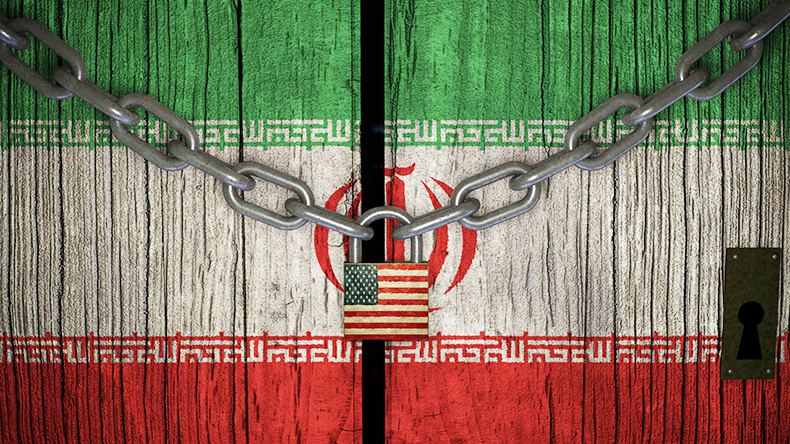Already a subscriber? Make sure to log into your account before viewing this content. You can access your account by hitting the “login” button on the top right corner. Still unable to see the content after signing in? Make sure your card on file is up-to-date.
The United States has announced a new round of sanctions targeting an Iranian businessman and his network of companies accused of facilitating illicit exports of oil to fund Iran’s military, nuclear programs, and regional proxy groups.
Some shit you should know before you read: If you’re unaware, the United States has been sanctioning the shit out of Iran since President Trump’s return to office, ramping up his “maximum pressure” campaign with weekly announcements targeting the Iranian economic lifelines. The renewed effort has zeroed in on individuals and entities tied to Iran’s oil and gas sector, which the US views as a primary funding source for Iran’s destabilizing activities. A recent high-profile case involved UAE-based businessman Jugwinder Singh Brar, who was sanctioned for operating a fleet of ships that covertly moved Iranian oil across international waters. According to the US Treasury, Brar’s shipping network facilitated illicit exports worth hundreds of millions of dollars, working with front companies and falsified documentation to mask the oil’s Iranian origin and avoid detection. His designation is just one of many the US is going after in an effort to disrupt foreign intermediaries who enable Iran’s sanctioned energy trade.

What’s going on now: In an announcement, the Treasury Department confirmed a new round of sanctions targeting Iranian liquefied petroleum gas (LPG) mogul Seyed Asadoollah Emamjomeh and his businesses, accusing them of orchestrating a multibillion-dollar energy smuggling operation that funneled revenue directly into Iran’s military and nuclear programs.
According to a readout by the Treasury, Emamjomeh operated through a network of Iran- and UAE-based companies, including Caspian Petrochemical FZE and others, to move vast volumes of crude oil and LPG—often under falsified documentation—to destinations like Pakistan and China. One of the vessels in his fleet, the TINOS I, even attempted to load cargo off the coast of Houston in 2024. OFAC reported that the operation had facilitated “hundreds of millions of dollars” in trade, directly benefiting entities like the Persian Gulf Petrochemical Industry Commercial Co., which has been previously sanctioned for links to the Islamic Revolutionary Guard Corps (IRGC).
The sanctioned network includes at least nine additional Iran-based LPG companies under Emamjomeh’s control, several of which were described as monopolizing deliveries for the National Iranian Gas Company.
Iran reacts: Iran has condemned the move, accusing the United States of sabotaging ongoing diplomatic efforts. Foreign Ministry spokesman Esmaeil Baghaei called the sanctions “a clear contradiction with the U.S. claim for dialogue and negotiation,” adding that they “indicate the lack of goodwill and seriousness of the US.”

US reacts: In a statement, Treasury Secretary Scott Bessent said, “Emamjomeh and his network sought to export thousands of shipments of LPG—including from the United States—to evade US sanctions and generate revenue for Iran. The United States remains committed to holding accountable those who seek to provide the Iranian regime with the funding it needs to further its destabilizing activities in the region and around the world.”
These sanctions come just days before a third round of indirect nuclear talks between the two nations, set to take place in Oman. Iranian Foreign Minister Abbas Araghchi struck a cautiously optimistic tone related to the upcoming talks, saying, “If the Americans continue to stay in a constructive way and avoid any unrealistic, undoable demands, I am confident we can conclude a good deal at the end.”






